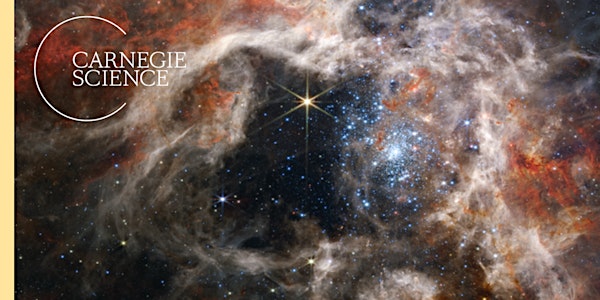The James Webb Space Telescope's ability to probe galaxies at infrared wavelengths in great detail has led to an unprecedented view of Ultraluminous Infrared Galaxies (ULIRGs). ULIRGs are the brightest objects in the nearby universe, glowing with the light of hundreds of trillions of stars. This extreme brightness is caused by the mergers of Milky Way-sized galaxies that produce an intense burst of star formation and black hole growth. Jeff Rich will discuss the discoveries that the Webb Telescope observations of ULIRGs have yielded, and how these will lead to a new understanding of supermassive black holes, massive star clusters, and changes in the interstellar medium.
Rich is an Astronomer at the Carnegie Observatories, as well as the Observatories’ outreach and education coordinator. His research focuses on observations of nearby galaxy mergers to understand how galaxies evolve throughout cosmic time. Dr. Rich received his undergraduate degree at the University of Southern California, and his M.S. and Ph.D. degrees at the University of Hawai'i.
Jeff Rich - Astronomer, Carnegie Science Observatories
Top Image Caption: Webb’s Near-Infrared Camera (NIRCam) displays the Tarantula Nebula star-forming region in a new light, including tens of thousands of never-before-seen young stars that were previously shrouded in cosmic dust
Image Credit: NASA, ESA, CSA, STScI, Webb ERO Production Team
__________
WELCOME BACK! WE’RE DELIGHTED TO PRESENT THE 22ND SEASON OF TALKS HIGHLIGHTING THE MOST EXCITING DISCOVERIES IN TODAY’S GOLDEN AGE OF ASTRONOMY.
All Lectures will be held in the Rothenberg Auditorium at The Huntington Library, Art Museum, and Botanical Gardens. Doors open at 6:30 p.m.; the program begins with a brief musical performance at 7:00 p.m.; followed by the Lecture at 7:30 p.m. Tickets are free, but reservations are required.
PLEASE NOTE: PER THE HUNTINGTON AND CARNEGIE’S HEALTH AND SAFETY PROTOCOLS, COVID-19 VACCINATIONS ARE STRONGLY RECOMMENDED. MASKS ARE OPTIONAL OUTDOORS AND STRONGLY RECOMMENDED INDOORS BUT NOT REQUIRED. PLEASE DO NOT ATTEND IF YOU HAVE ANY SYMPTOMS CONSISTENT WITH COVID.
Watch the livestream of the program by clicking on the link below:
TUNE IN HERE!
